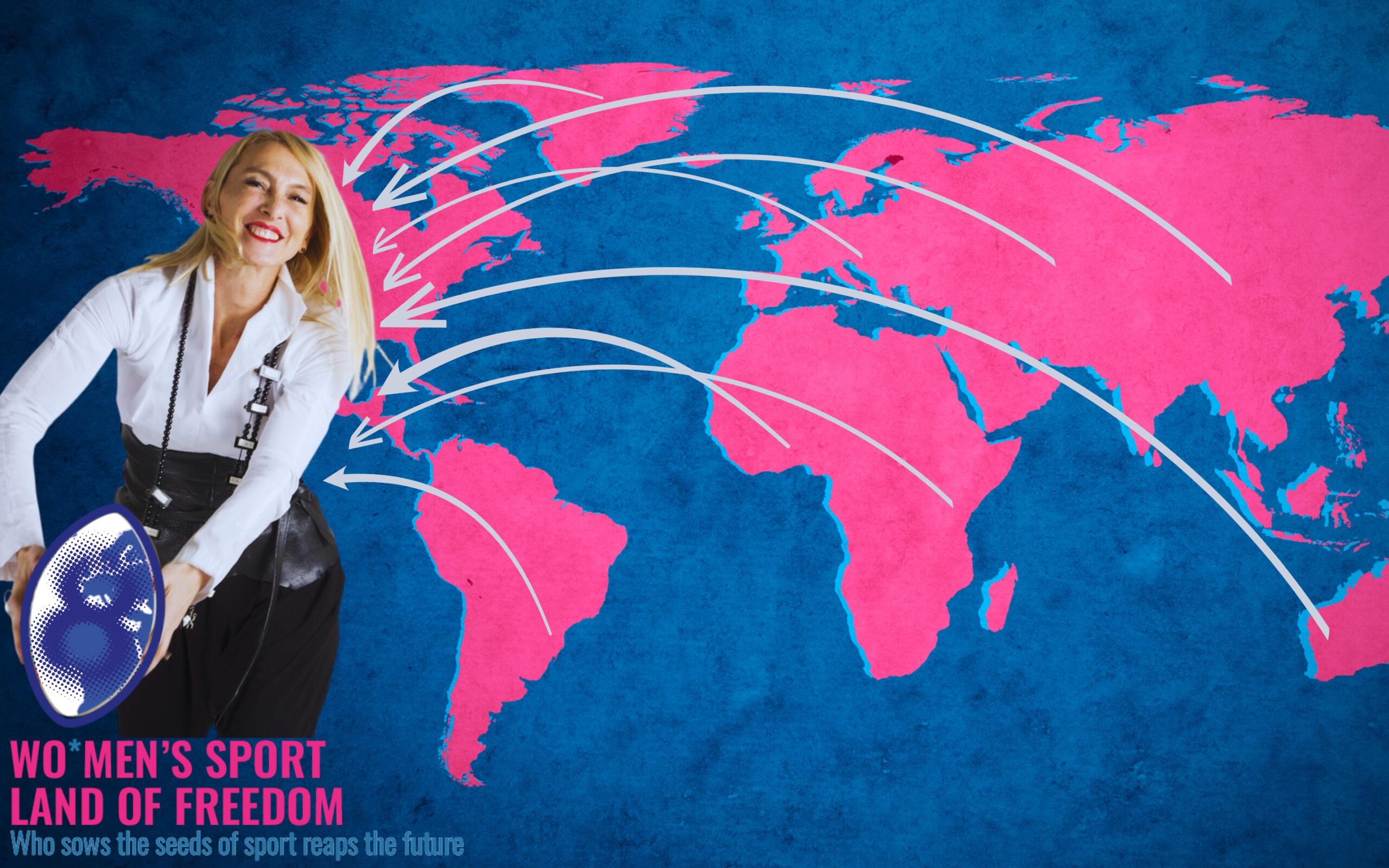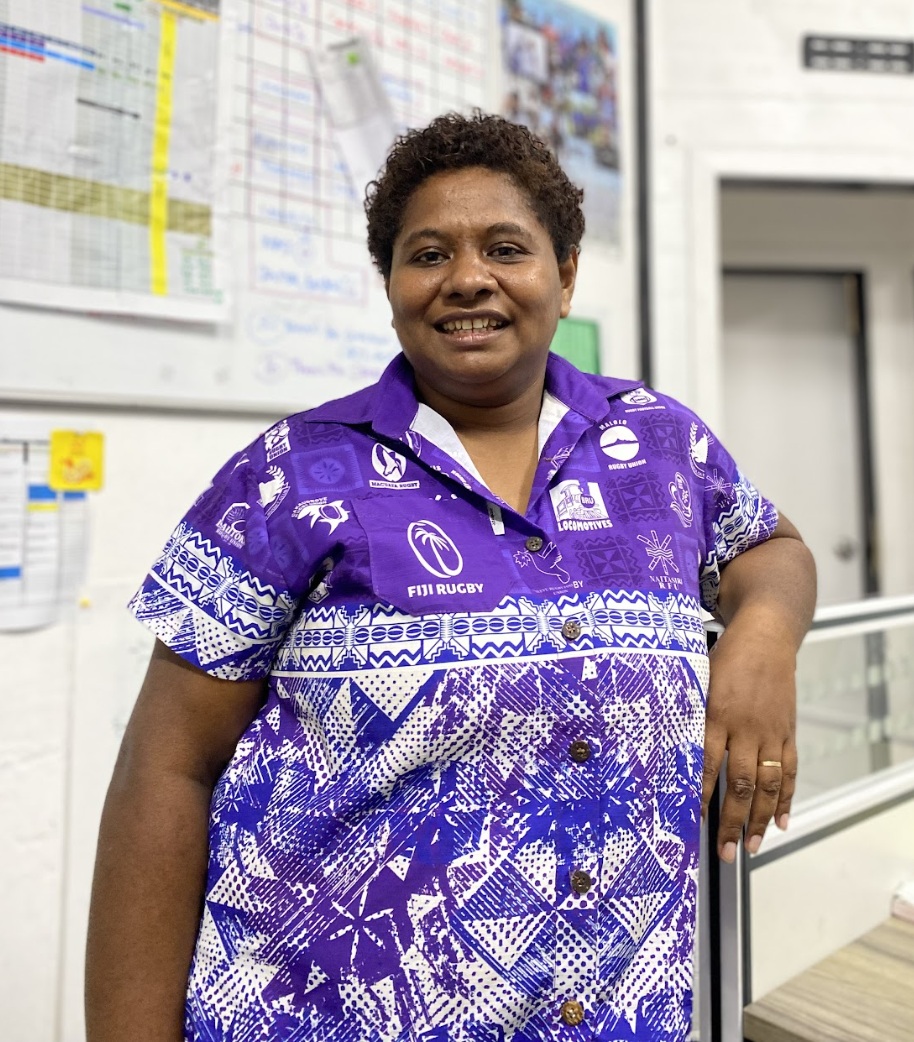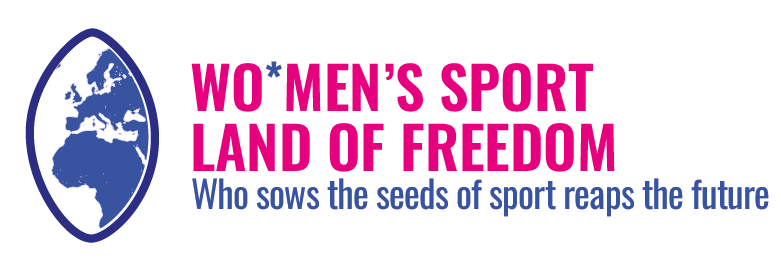
FIJI: IF WE ARE FAITHFUL AND HONEST IN WHAT WE DO, ONE DAY WE WILL GET THERE.
“If we are faithful and honest in what we do, one day we will get there.”
Sulueti Roqoli Ravato

Vela Naucukidi

Thanks to:
Sulueti Roqoli Ravato
Former Womens Development Manager and Team manager for Fijiana National Team
Vela Naucukidi
- The history of the women’s movement in Fiji
- Testimonials
- Reading time: 7 minutes
FIJI - Find out more
Fiji is a parliamentary republic in Oceania with about 936,000 inhabitants in 2024 and a slight female majority. Women hold 22% of parliamentary seats and participate in the labor force at 37.4%, compared to 76.5% of men. Despite progress in education and health, obstacles remain in political representation and access to decision-making roles.
(SOURCE: data.unwomen.org; World Bank Gender Data Portal; IPU Parline; Fiji Bureau of Statistics)
HISTORY OF THE COUNTRY (Vela Naucukidi)
1. When did the women’s rugby movement start in your country and what is its history? How is rugby structured in your country?
It began in 1996, but our first official test match was in 2005. Women’s rugby in Fiji started with the sevens format before expanding into fifteens. The movement was initiated by one of Fiji’s rugby legends, Pio Bosco Tikoisuva. After retiring from the game, Tikoisuva coached a men’s team in Suva. During training sessions, the players’ wives and girlfriends would gather at the sidelines. Noticing that their presence had become a distraction, Tikoisuva had a visionary idea: he handed them a rugby ball and encouraged them to train as well. That simple but revolutionary gesture led to the formation of the very first women’s rugby team in Fiji. What began as informal training quickly grew into a structured team, marking the birth of women’s rugby in the country. Over the years, the game evolved, and Fijian women have excelled on the global stage in both sevens and fifteens. This legacy continues today, with more and more women and girls embracing rugby not only as a sport but as a tool for empowerment, leadership, and opportunity. Currently, there are 26 provincial women’s teams. Beneath this structure, clubs operate — with some provinces having two and others up to five.
2. Do you think playing rugby has a social impact for a woman in your country?
Yes, playing rugby has had a profound social impact for women in Fiji. More than just a sport, rugby is a platform for empowerment, leadership, and breaking gender stereotypes. In a country where rugby is deeply rooted in culture, women’s participation has challenged traditional norms, proving that women can also excel in a male-dominated sport. It has also opened educational and professional opportunities, through scholarships and professional contracts, both nationally and internationally. Women in rugby have become role models, inspiring younger generations to pursue their dreams with confidence. Rugby fosters teamwork, resilience, and leadership skills that transfer into daily life. It has also been used as a tool to combat violence against women and children. The Get Into Rugby Plus program created safe spaces where young people could speak openly, leading to increased reporting and awareness.
With Fijiana players now receiving contracts, rugby has also become a sustainable source of income. Through training and education, there has been a significant rise in women volunteers, coaches, referees, and administrators, strengthening women’s presence and influence in sport.
3. In your opinion, what can rugby give to women in your country?
Empowerment and breaking stereotypes: In many cultures, including Fiji, traditional gender roles limit women’s opportunities in sport and leadership. Rugby challenges these norms, showing that women can be strong, competitive, and capable. Self-confidence: Rugby strengthens both body and mind, helping women believe in themselves. Leadership: Players become leaders in their teams and communities. Breaking barriers: The success of the Fijiana 7s and 15s teams has changed how society perceives women in sport. Educational and professional opportunities: Rugby offers scholarships and career pathways. Many athletes have studied and built careers through rugby. Scholarships abroad: Talented players gain opportunities to study overseas. Coaching and sport management: Women can become coaches, analysts, administrators, or referees. International exposure: Global competitions open doors to new careers. I was one of the first Fijian women to receive a World Rugby scholarship. Economic independence: With contracts, players now earn salaries and can support their families. Role models: Women in rugby inspire younger generations of girls in Fiji to dream big. Mentorship: Experienced players mentor the younger ones. Decision-making roles: Increasingly, women serve as coaches, managers, and sport leaders. Community and social impact: Rugby is not only competition but also social development. Get Into Rugby Plus: uses rugby to teach life skills and address gender-based violence. / Safe spaces: Girls find environments where they can express themselves freely. / Social cohesion: Teams create bonds of sisterhood and belonging. Health and wellbeing: Rugby improves physical and mental health. Fitness: builds strength, endurance, and overall health. / Mental resilience: teaches discipline, focus, and stress management. / Emotional support: rugby provides a strong social and psychological network, reducing isolation.For Fijian women, rugby is far more than a sport — it is a life-changing opportunity. It provides education, financial stability, leadership skills, and social influence, while promoting health, confidence, and gender equality.
JOURNEYS THROUGH RUGBY (Sulueti Roqoli Ravato)
1. When did you start playing rugby and how you discover it?
I started playing rugby in 2017 when a new Fiji Rugby Union rule required all provincial teams in the National Championship to also have a women’s team. So, I joined Tavua Rugby, played once, and then received a call from Fiji Rugby. That was my turning point: I left playing and joined the administrative team, where I remain to this day. As an administrator and executive, it was very difficult, because I wanted to play. I kept thinking of the girls who worked so hard to train with us and then went back to tough jobs — while my own work didn’t feel as hard in comparison.
2. What has rugby taught you that has impacted your daily life? Can you give me an example of when a rugby mindset was useful?
It hasn’t just influenced my life but also my family’s. Rugby was part of our daily bread when my father was one of the Top Ten in Fiji Rugby Development and worked there for more than ten years. That shaped me too.
Beyond my qualifications in Information Technology, rugby knowledge has helped me greatly. Rugby gave me my job, helped me travel across Fiji, and improved my everyday life skills. It has taught me three key things: Solidarity: working together is essential. / Integrity: if we are faithful and honest in what we do, one day we will get there. / Identity: knowing who we are and remembering our roots.
3. Can you give me 3 words that connect rugby to freedom?
Journey – Socialisation – New friends.
4. What does live in a land of freedom mean to you?
Coming from our culture and the stigma imposed by men, living in a land of freedom means having the freedom of choice.
5. What object represents you and why? What is an aphorism that guides your life?
Object: Cars. I don’t like staying in one place or having the same daily routine. I’m tough, but I need some space now and then — just like cars need their annual check-up.
Motto: “When you educate a man, you educate an individual; when you educate a woman, you educate a generation.”
